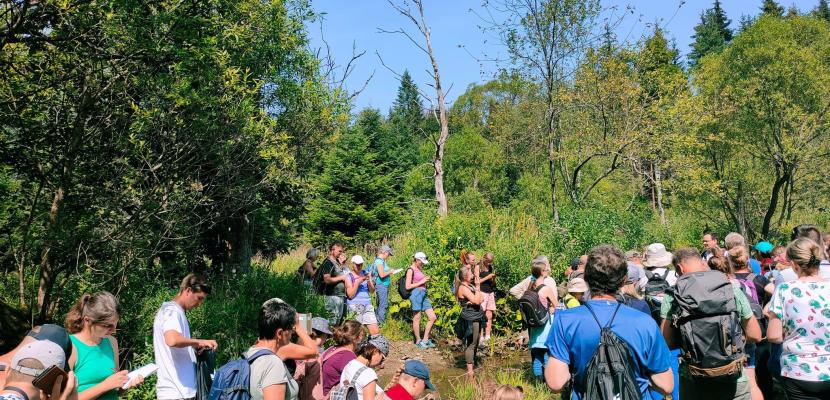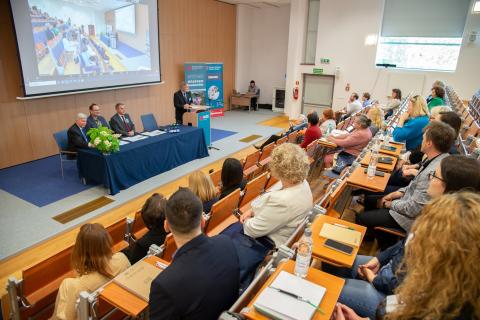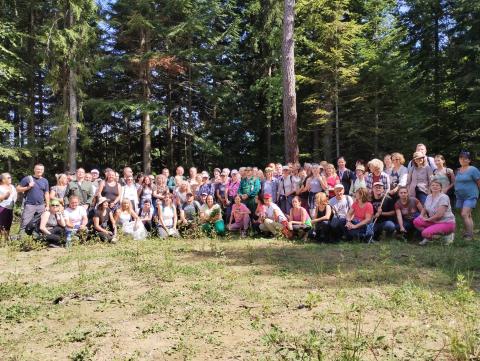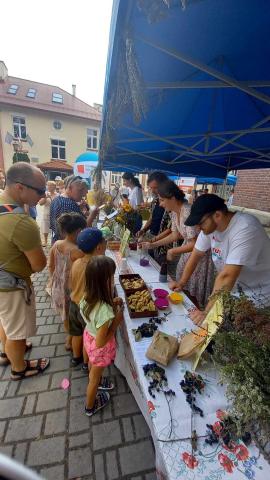
Supporting herbalism as a way of life in protected areas (PA)

About this good practice
Herbalism, both as a profession and a means to wellbeing of persons and communities has gained as increasing interest in the last decade. A healthy lifestyle often relates to traditional treatment methods rooted in local culture and influenced by access to a clean, biodiverse environment.
The main assumption of practice is a multidimensional openness to various participants in social life. The beneficiaries of the action are both adults, professionally active and inactive, as well as young people studying, and students of primary/secondary schools.
Since 2012, the State University of Applied Sciences in Krosno (PANS) supported the establishment of the Polish Society of Herbalists and Phytotherapists (PTZiF),an organization that brings together people both individually and professionally actively involved in herbalism. Recognition of the needs for education in this area led first to the launch of postgraduate studies in the field of herbal commodity science,and then to engineering studies in Herbalism (EQF-6).
The University's activities also include organizing regular and ad hoc educational and herbal promotion events. The most important include the field workshops and the lectures conducted as part of the Carpathian Climates- Annually, Krosno festival dedicated to local craftsmanship,culture and food producing.
PANS attaches great importance to the issues of species conservation and habitat protection which are an important part of the courses, training and lectures.
Resources needed
It isn’t possible to precisely determine the financial resources spent on practice, as it includes many events supporting herbalism. The staff needed to organise all the events is ~20 people. Considering all the people conducting classes at studies of herbalism, the number of people exceeds 50.
Evidence of success
-The PTZiF has been operating for 12 years, associating over 100 practitioners and enthusiasts of herbalism from Poland and abroad;
-Every year ~20 students undertake engineering studies in the field of Herbalism at the PANS in Krosno;
- ~180 people participate in Herbal Trips each year, the record is ~350;
-The stimulation of the herbal movement has resulted in regular publications, scientific conferences, patents and a general increase in public awareness of, a.o. the importance of PA.
Potential for learning or transfer
Thanks to the activity of the State University of Applied Sciences in Krosno and the Polish Society of Herbalists and Phytotherapists, the social activity of herbalists has spread throughout Poland and Krosno has become one of the most important centres for educating herbalists in the country.
Potentially, there are many regions in Europe that, by covering clean and biologically diverse PA, have great opportunities for the development of herbalism. This is related, a.o. to the growing demand for herbal raw materials and interest in traditional methods of treatment using herbs and products derived from them. The support for the development of the herbal movement can be small, regional universities as well as local social, producer and industry organisations.
In lower-ranking PA many herbalists run their own businesses, mainly herbalism or agro-tourism. The benefits for PAs are related to the development of a rational use of resources and building an appropriate attitude of visitors.


